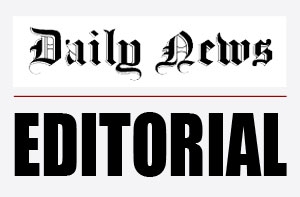There is no doubt that the Internet and its derivative World Wide Web (WWW) are the most revolutionary inventions of the 20th century. What began life as a military communications network in 1969 has now evolved into a vast web of interconnections that consumes our lives 24/7. From chatting with relatives half a world away on What’s App to getting route guidance to a strange city on Google Maps, it is hard to imagine that we once lived without the Internet.
They say that every good thing turns bad over time and the Internet is no exception. It did not take too long for the Web to get infested with a host of nefarious content from online porn to neo Nazi propaganda. Facebook, which began life as a way for people to post updates on their lives is now the biggest purveyor of “fake news” – news that appear to be genuine and true, but which are nevertheless totally fabricated.
There is also a “deep web” where you can buy a gun – or a slave. Bots or trolls, which are more or less automated content generators can trick entire populations into believing the narratives espoused by their handlers. Moreover, as countries and companies are becoming increasingly reliant on the Web, running the entire administration on the “cloud”, there is a real danger of hackers gaining access to sensitive data and even launching cyber attacks on power supply and transport systems. This has already happened more than once. There is also the fear that tech companies such as Google, Facebook, Amazon and Apple already know too much about our lives, our money and our spending habits.
But the biggest danger that the Web poses is that it is replete with hate speech and propaganda that can influence and incite people in equal measure. Here in Sri Lanka, where almost everyone has a smartphone with access to the Web, we have experienced the devastating effects of a deadly combination of fake news, trolling and hate speech.
The best example is the spate of bombings on Easter Sunday, perpetrated by misguided youth who fell for Jihadist propaganda espoused by online hate speech and extremist websites. Once the events unfolded, the Web went into overdrive with posts that vilified all Muslims, which unfortunately led to several incidents that targeted the Muslim community. Even four months after the incidents, there is no shortage of such incendiary material on Facebook and the rest of the Web.
These issues were very much in focus at the recently concluded Colombo Defence Seminar, where speakers from around the world called on all countries to collaborate closely to combat incitement and the spread of hate and violent extremist propaganda. In the light of recent events here and abroad, there had been many calls for the regulation of the Web. Some have mentioned the word self-regulation, but that would be impossible given the size and scale of the Web.
There are two other approaches, though. Companies such as Twitter and Facebook now comb through their sites for any malicious, discriminatory, inflammatory and inaccurate content that may harm individuals, entities or nations. Both sites recently took down accounts that were deemed to have violated their policies. In the case of Sri Lanka, Facebook hired extra hands to go through vernacular content originating in Sri Lanka to stamp out hate speech at the source.
The other solution is Government regulation. This may seem unpalatable to some, but the Internet is too big to be left in the hands of consumers and companies. After all, the Internet is Open Sesame for everyone, with hardly any supervision. Some countries have banned certain Internet services such as Twitter and Facebook completely while others, including Sri Lanka, restrict access to social media and communications sites during times of trouble. Both are not very practical approaches - it is far better to have some sort of ongoing governmental regulation on such content instead of bans per se, which sometimes makes fake news travel faster.
Several countries, including many liberal democracies where the word censorship is usually taboo, have now opted to regulate the Internet in some way to ward off its dangerous side effects. There are reports that even the United States is considering the introduction of such measures. There are also attempts to limit the reach and influence of the big tech companies. Fake news is being targeted by many countries, with fines and/or imprisonment for the perpetrators. The Internet has clearly run out of control and it is time that Governments took action to rein it in.



Add new comment